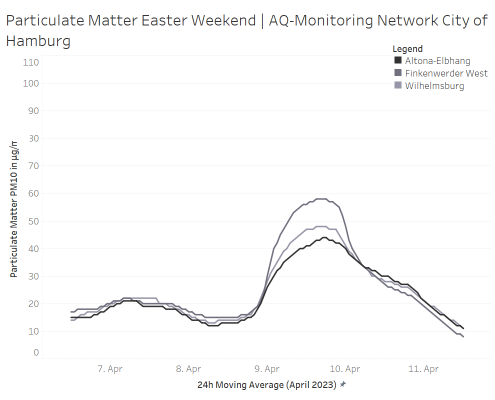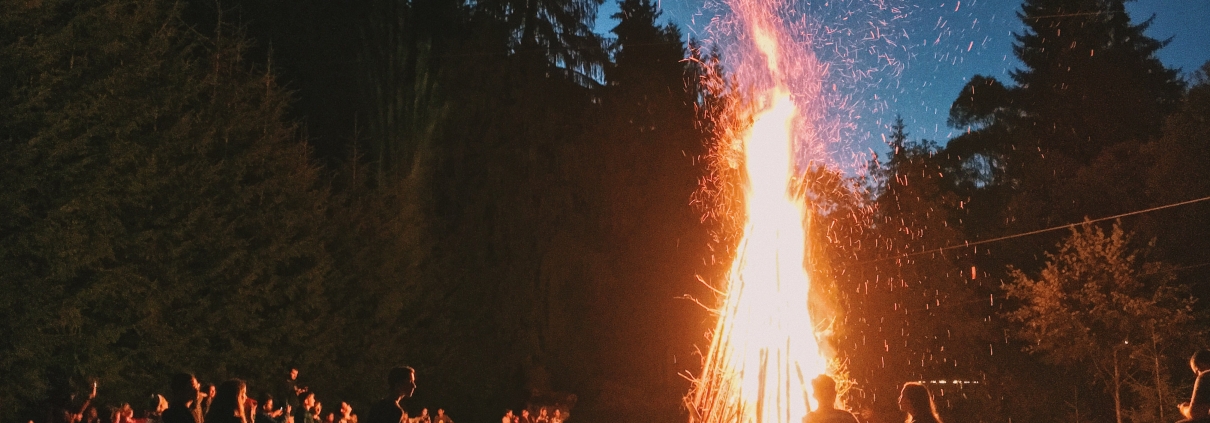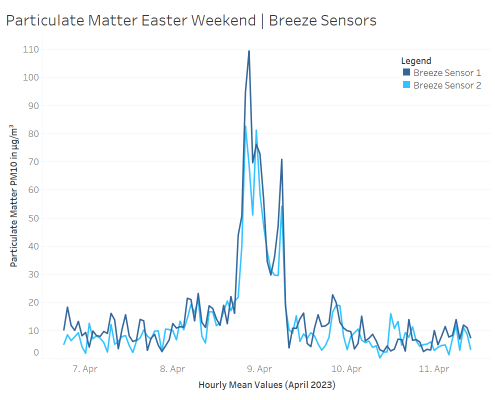Traditional easter fires and their impact on local air quality
Stemming from pagan and clerical roots, Easter fires (also called Paschal fires) are part of German tradition. They are typically performed around sunset on Holy Saturday or on Easter Sunday. Because there is often a larger amount of these bonfires happening at around the same time in a city, there can be significant impact on local air pollution levels, as shown with example data from two of Breeze Technologies’ air quality monitoring locations in Hamburg, Germany, below:
This year, Easter fires began on the evening of Holy Saturday (8 April 2023). The bonfires in Hamburg resulted in a significant increase in particulate matter concentrations throughout the city, which is represented with the first peak in the graph. Pollution levels fall relatively quickly again – until one of the largest fires in Hamburg in recent history causes another pollution spike on Sunday, 9 April.
As we have already discussed in our article about pollution concentration development around New Year’s Eve, official data from the Luftmessnetz Hamburg, the air quality monitoring network of the state of Hamburg, only provides particulate matter data as floating 24 hour averages (see chart below). This means that concentration levels from the Easter fires and the blaze in Hamburg-Rothenburgsort blur into one another. By just studying the publicly available data, it would not be possible to identify an air quality impact of the blaze at all:

Particulate matter levels around the Easter weekend in Hamburg, Germany – data from the public air quality monitoring network of the state of Hamburg
This example shows again why real time, high-resolution data is key to make informed decisions about air quality; both as a citizen, but also as municipal decision maker. You can learn more about air quality in our air quality academy, or find air quality data from around you on our air quality citizen portal. If you would like to investigate air quality in your municipality, contact us today!

 unsplash.com / Georgiana Avram
unsplash.com / Georgiana Avram

